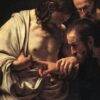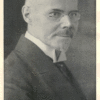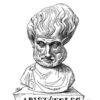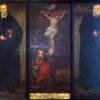Category: Evangelical Calvinist
Writings from the blog: Athanasian Reformed (aka The Evangelical Calvinist). Senior Reformed scholars present a coherent and impassioned articulation of Calvinism for today’s world.
Election. John Owen in Conversation with Barth and Torrance
Here’s a post I found in my drafts from 2013, not sure if I ever posted this. Election. Election has been such a source of consternation for so many of us through our own theological years. The battle continues to fray on and on between the rascally classical Calvinists and Arminians—at least in its most popular expression—there is a trading of proof texts that sail right past each other as two ships in the dark navigate precariously past one another. There is a more sophisticated way to engage with this tumultuous topic. I like to think that Myk Habets and…
God Speaks, but Only Through Men in Christ
It’s better to know God in the way that He has deigned to be known. He has freely chosen to be known through men’s (Prophets and Apostles) voices, and not His voice directly (like audibly per se). Even as He came to us in the Son, He came as a human being; the human being par excellence. But still, He accommodates to speak to us, to reveal Himself to us, in a man’s voice, a human’s voice; albeit the Godman’s voice. The person we finally encounter in the Man, Christ Jesus’ voice, is the person of the triune God; nevertheless,…
Editor’s Note
A housekeeping note: most likely, unless I post a re-post, my forthcoming posts for the foreseeable future will be shorter than normal. I am still going through some heavy spiritual battle, that is also producing heavy mental anguish, and so that has been affecting my output here, as well as in other areas of life. For that I would appreciate continued prayer, that the Lord would see fit to release me from this current struggle, and provide that type of “new day” for me in Him. Anyway, that’s what you can expect for the near future. Shorter posts that attempt…
Balthasar. God and Scripture
I thought this quote, while speaking to another issue (Barth and Balthasar’s disagreement over key theological points), is apropos in regards to how Protestant Christians approach the scriptures, interpretively. It is interesting that we can look at the same scriptures, and come to such different conclusions — on certain points of dogma and theological emphasis. This quote from Balthasar (quoting something else, see the biblio info) helps state the reality of this conundrum: The battle is so serious because neither side can seriously deny that it is really the same object we refer to, but at the same time we can find no way…
We Are Not Instruments Anymore than Jesus Is
The thing about being a co-heir with Christ is that you are not looked upon as a mere instrument in God’s hand anymore than the Son is. That is, you aren’t simply some dispensable tool the Lord uses and tosses away. No, He has adopted us into His very life, by grace; such that when we suffer, He first suffered for us; when we are in turmoil, He first was in turmoil for us; when we die, He first died for us; when He first resurrected and ascended, we now too will resurrect and ascend to be with Him forevermore….
On Exegeting Holy Scripture Christologically
The following comes from a post I wrote on August 13th, 2012 that I posted at another (now defunct) blog of mine. It was in response to another blogger’s series of posts on theological exegesis (he is a biblical studies guy). The following was a comment on one of his posts engaging with someone else in that thread. I still like most of what I wrote here. One thing I would add is that I think all of the Literary, Grammatical, Historical tools can and ought to be deployed, even within the Christological exegetical approach I am describing below. In…
A More Responsible Way to Think About Biblical Eschatology: Engaging with Karl Heim Through TF Torrance
The following is a repost from September 25, 2018. It is this kind of thinking that moved me from a premillennial understanding of the last times, to an amillennial perspective (although I still retain the right to a historic premillennial perspective depending on the moment). The following post sounds like I have no interest or time for paying attention to geo-political and theopolitical trends as those might or might not pertain to God’s inbreaking into the world in an end times type of way. I am a futurist, I think you have to be because Jesus was; because the Old…
On Being a Dialogical Rather than a Static Christian Thinker
This post deals with some technical stuff that might not be interesting for all readers, but I find it quite instructive in better understanding why it is that Thomas Torrance rejects the determinism that shapes frameworks of thought like that found, theologically, within Arminianism and Calvinism. And it should also help to illustrate an alternative route to thinking about things in causally determinative ways; which implicates the ways that, in the West, in general, we have become most accustomed to think, even though someone like Einstein and his theory of relativity has demonstrated that reality, in fact does not work in…
The Lutheran Connection with TF Torrance: The Kerygmatic Christ as the Concentration
The Gospels of the New Testament witness all present Jesus via His historicity, and the facts of His life as they unfolded in particular frames of reference. John the evangelist ended his Gospel with the quip, “And there are also many other things that Jesus did, which if they were written one by one, I suppose that even the world itself could not contain the books that would be written. Amen.” Clearly, Jesus was a historical personage, but this is not how the Christian has come to know Him at a first order; nor is it the way that the Evangelists…
The No-Death of the Kingdom of Heaven
Death is so anti-climactic relative to the world at large. You can live 80 good years on this earth, and then simply die. Those you leave behind will grieve and mourn the absence, but the world at large keeps going as if nothing happened. And yet in the Kingdom of Heaven every death is charged full with God’s death for the world in Jesus Christ. There is no more death, in fact, in the Kingdom. In the Kingdom what was once death, in the fallen world, was put to death in the death of Christ. As a result, there is…









